Perhaps the person who wrote about Uncle Ho the most and most successfully, after poet To Huu, was poet Che Lan Vien. Many generations of students have known his name through the poem “The Man in Search of the Shape of the Country”.
On June 5, 1911, from Ben Nha Rong, Nguyen Tat Thanh left the Fatherland, starting his journey to find a way to liberate the nation and liberate the country. (Photo: VNA)
If we talk about ideology, this is the poem with the greatest ideological scope. If we talk about emotion, this is the poem with the highest emotional range. It is not easy for the poem to penetrate deeply into the reader's mind and has eternal educational value for many generations about the patriotism of leader Ho Chi Minh.
The country is so beautiful but Uncle Ho had to leave.
Let me be the wave under the ship sending Uncle Ho off.
When the shore gradually recedes and the village disappears
There is not a single row of bamboo in all four directions.
The first four verses and the entire epic poem lead the reader with very familiar images - the Vietnamese bamboo tree, when he left Nha Rong port to find a way to save the country. And from there, he traveled to Paris - the capital of France, with a journey across the continents of Asia, Africa, America... Wherever he went, he surpassed himself with his determination, his intelligent and creative mind, and his patriotic heart. He was determined to find a way to liberate the nation, to free the people from the slavery of French colonialism and feudalism.
Poet Che Lan Vien. ( Photo: Internet )
The poem "The Man in Search of the Shape of Water" expressed his thoughts and aspirations during his long journey of time:
Dream of water at night and see the shape of water during the day.
The grass in my dream is green like my homeland.
Eating a delicious bite is also bitter for the Fatherland
It is not peaceful to look at a flower branch.
The more tormented he was, the more faith and strength he gained. That strength and faith, like tireless wings, helped him find the light of Marxism-Leninism:
He shouted alone as if talking to the nation.
Food and clothing are here, happiness is here!
There is nothing more joyful, nothing happier than when the Russian October Revolution succeeded, Lenin became the genius leader of the world's proletariat. He was extremely moved: "Uncle Ho's tears fell on the word Lenin".
Reading these verses, readers will understand more deeply the sublime emotions and talented writing style of Che Lan Vien. Because each poet has a different perspective and feeling. Poet Che Lan Vien has skillfully applied the most vivid documents about Uncle Ho's life and activities. The scientific basis creates the emotional foundation!
Many poets exclaimed: It is very difficult to write good poems about Uncle Ho. Emotions alone are not enough, finding new poetic ideas about him is important. From the simplest things in Uncle Ho's daily life such as rubber sandals, khaki shirts, to walking sticks... all can be written into poems. But how to sow in the hearts of readers through those poems so that they understand that "Uncle Ho's greatness does not surprise anyone" is something that not everyone can succeed. Poet Che Lan Vien not only succeeded in writing about those familiar things, he also went much further, that is, the great universality through the image of Uncle Ho. He told them the people's belief and deep gratitude for the leader who spent his whole life sacrificing and dedicating himself to the nation.
From the poem "A regular meal in a small village" the author uses language and images as real as the stomach of a mountain person:
Since Uncle Ho, life suddenly brightens
A bowl of fragrant rice on the third day of August
Fragrant rice with braised fish
Uncle Ho's merits will be remembered for thousands of years.
If talking about love for the Fatherland, love for the Party and love for the leader, especially Uncle Ho, perhaps few people are as great as Che Lan Vien. I still remember in 1976, the Literature Publishing House introduced to readers the poetry collection Flowers before the Mausoleum of the People, which the poet selected about 50 of the most outstanding poems. From the opening poem "You changed my life, You changed my poetry" to the end of the poetry collection "Your Will", the author used a quite diverse writing style. Although some poems have a political color, they are still imbued with humanistic philosophy. Unlike many poets, the breath in Che Lan Vien's poetry is always strong, optimistic, and generous, it is divided into two different emotional streams. In this poem, the poet is moved by sincere emotions, in another, it is deeply philosophical with the ideology of the times.
Revolutionary Nguyen Ai Quoc at the 18th Congress of the French Socialist Party in Tours, December 1920. (Photo: Archive).
The poem "You Changed My Life, You Changed My Poetry" is a typical example of the author's inner self. The author looked back at himself, "transformed" himself to follow the revolution. Not only poet Che Lan Vien but also a large group of artists and writers at that time were awakened by the revolution. Nurtured, educated, and trained by the Party and Uncle Ho, they soon became famous poets and writers, their works became sharp weapons contributing to the victory of the revolution. Che Lan Vien repented himself, but the poet's own repentance became a common repentance for artists and writers who were only used to living with their "ego":
I went to Nha Trang to see the beautiful sky and sea.
Is it good that Pac Bo cave has wind blowing?
The leader's bed is two rows of stone tiles.
The indigo shirt Uncle Ho wore was so simple
*
The country has changed but we do not know
The person who changed my life is gone, I'm still there
not good
I still closed the office door and wrote hard.
How many days of sunshine have passed in vain
Che Lan Vien's confession is the most straightforward and frank when he became a communist and understood the principle: literature is a weapon of class struggle, not a poet who "lulls with the wind, dreams with the moon and wanders with the clouds". When artists and writers transform into revolutionary soldiers and create works useful for the revolution, they are forced to experience hardships and sacrifices with the people:
That's when we can jump into the station.
fearless
Eat a piece of sweet potato and feel
is delicious
When alone, I know I am ashamed
When looking at life, each leaf has its own young silk.
Painting "Tonight Uncle Ho is awake" ( Oil painting by artist Nguyen Cao Thuong ).
“Looking at life with each leaf and each strand of silk” is the awakening of the thoughts of writers and poets, including poet Che Lan Vien. They dare to be proud of having shaken off the vague past to step into a new horizon of literature and art with the wide avenue of “Nation, science, mass” according to the cultural and artistic platform outlined by the Party.
Re-reading the poems written by Che Lan Vien about Uncle Ho, I truly admire him - a poet who not only had great intellectual stature of the time but was also a great thinker, a staunch revolutionary soldier. His works about Uncle Ho will forever remain the quintessence of Vietnamese revolutionary poetry.
Phan The Cai
Source


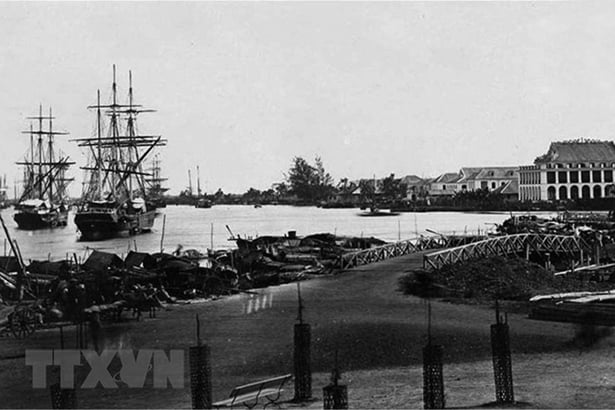
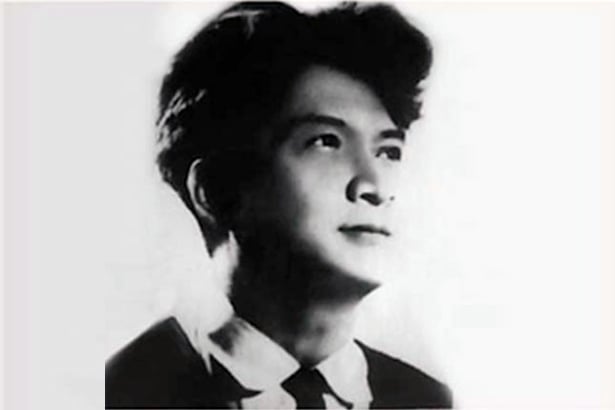
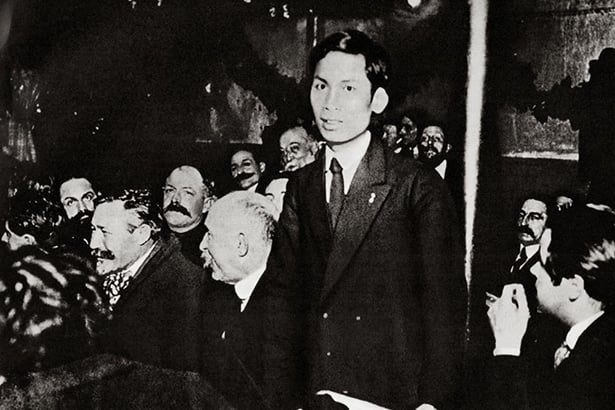
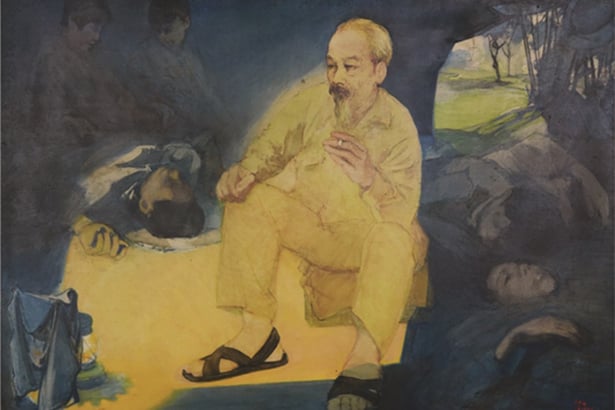






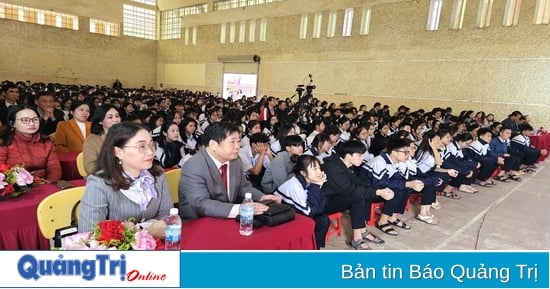

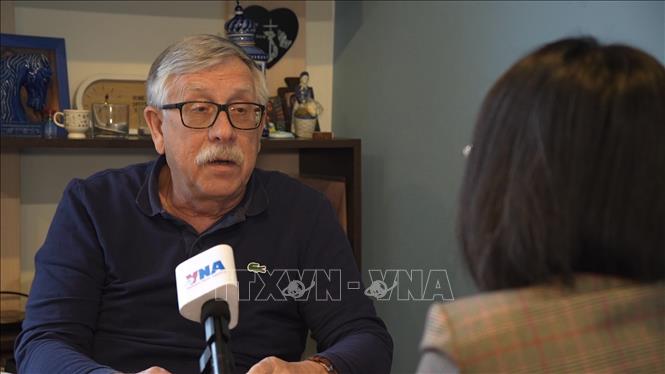

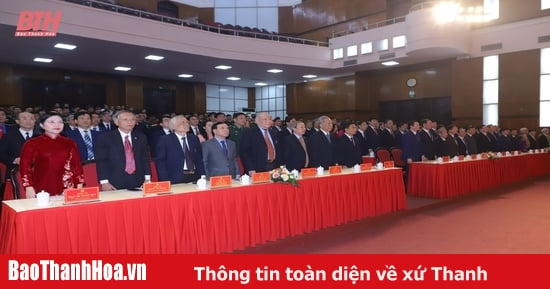
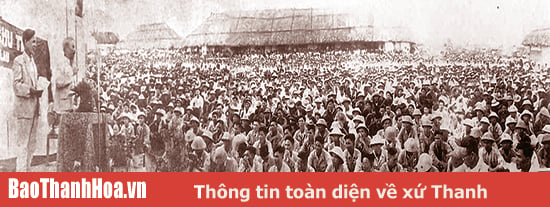

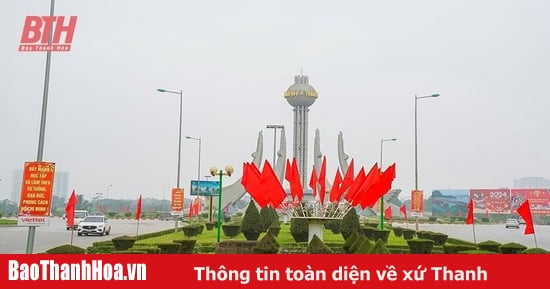
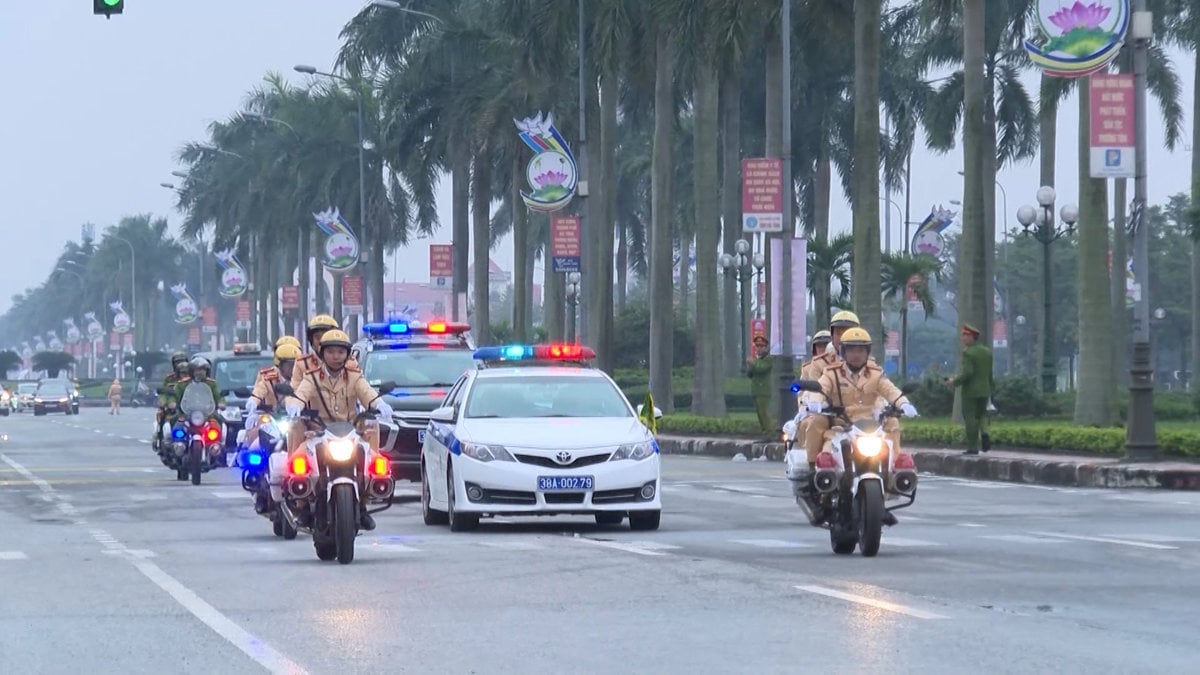

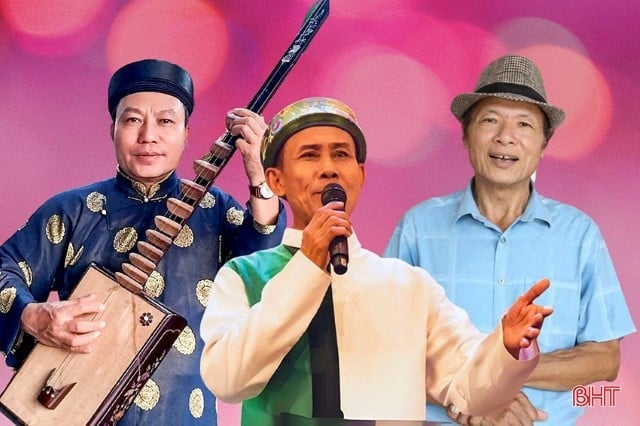
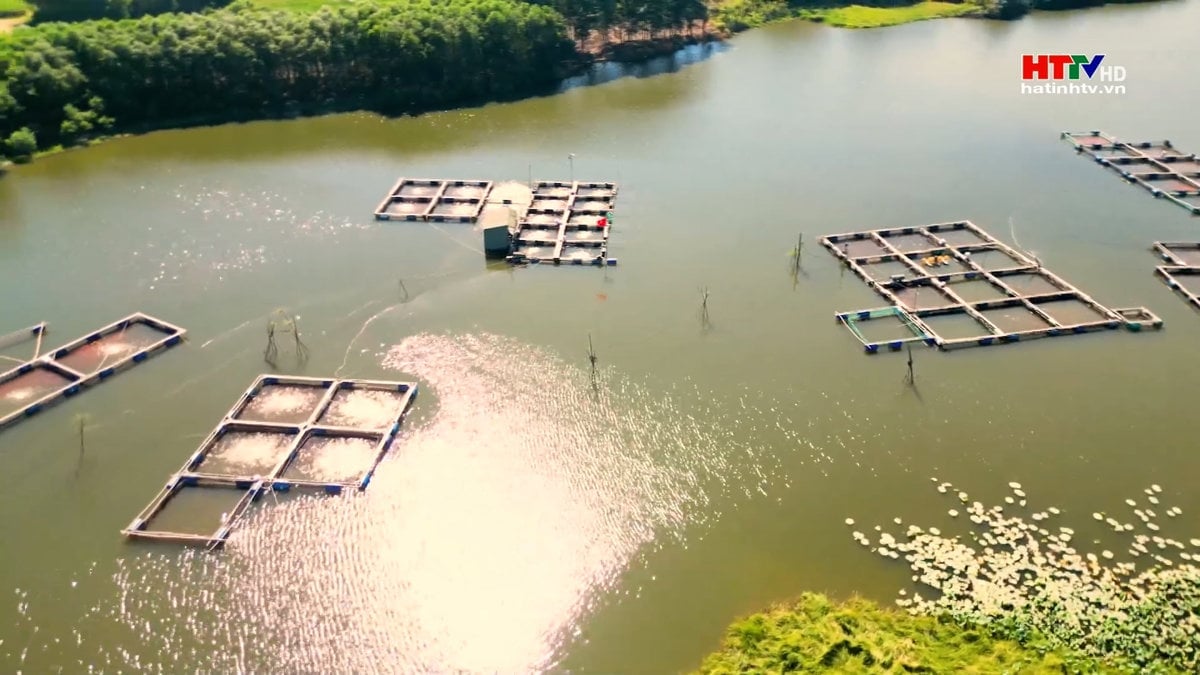
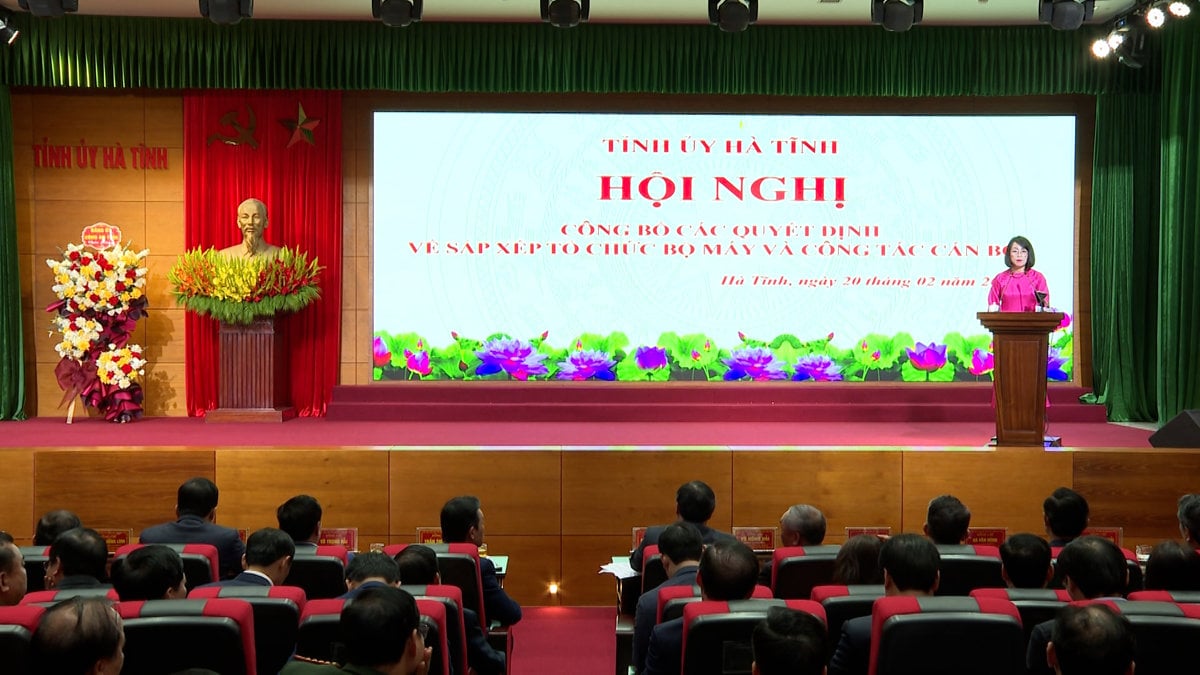

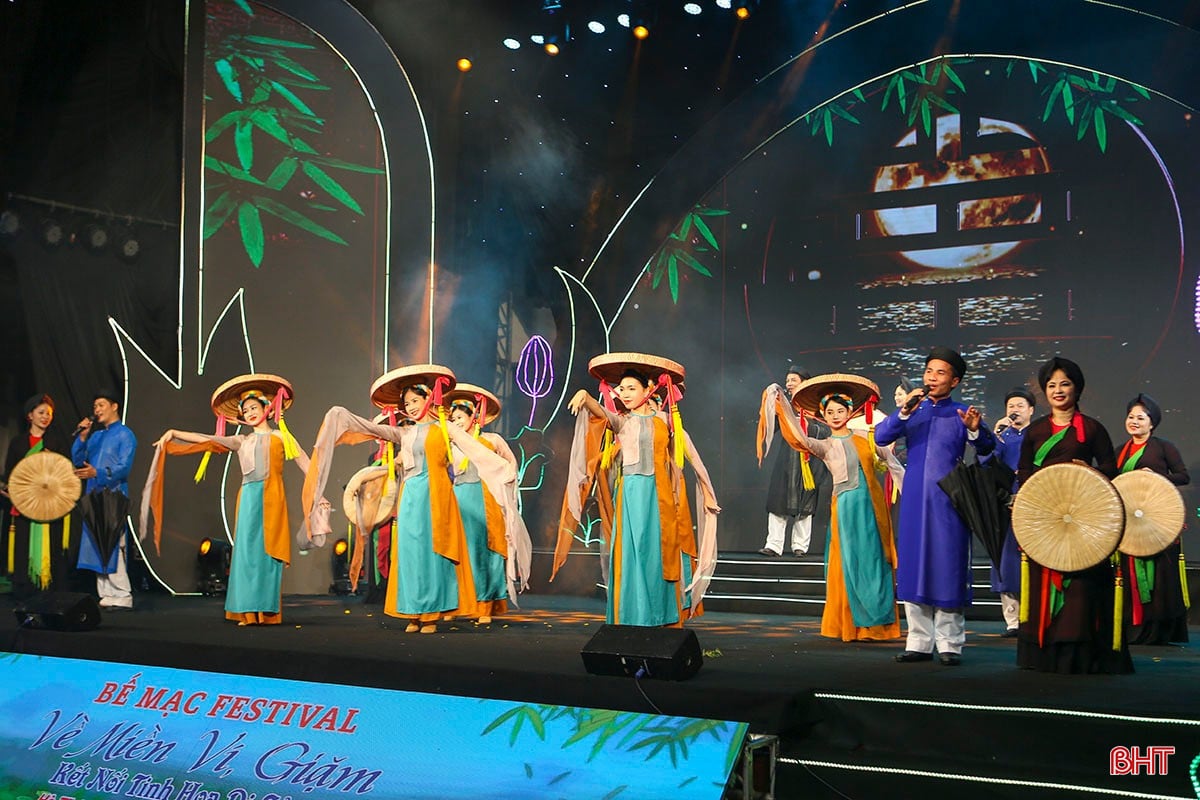
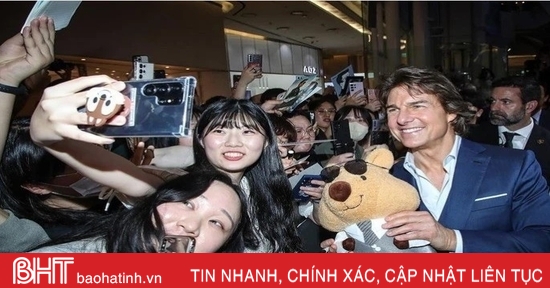
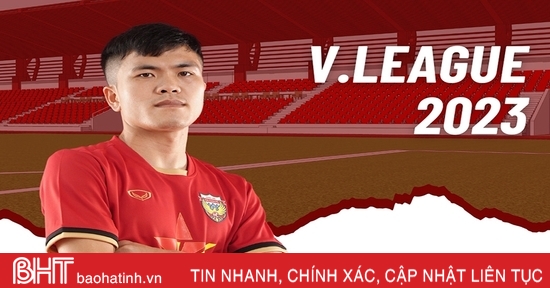
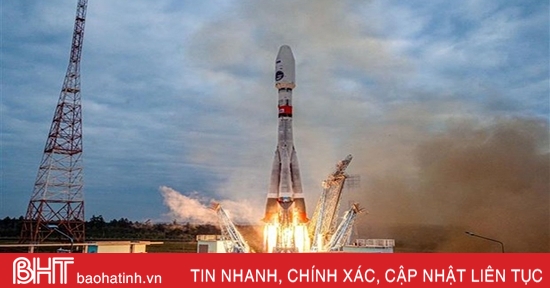

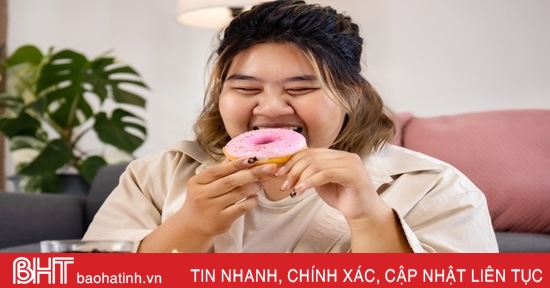



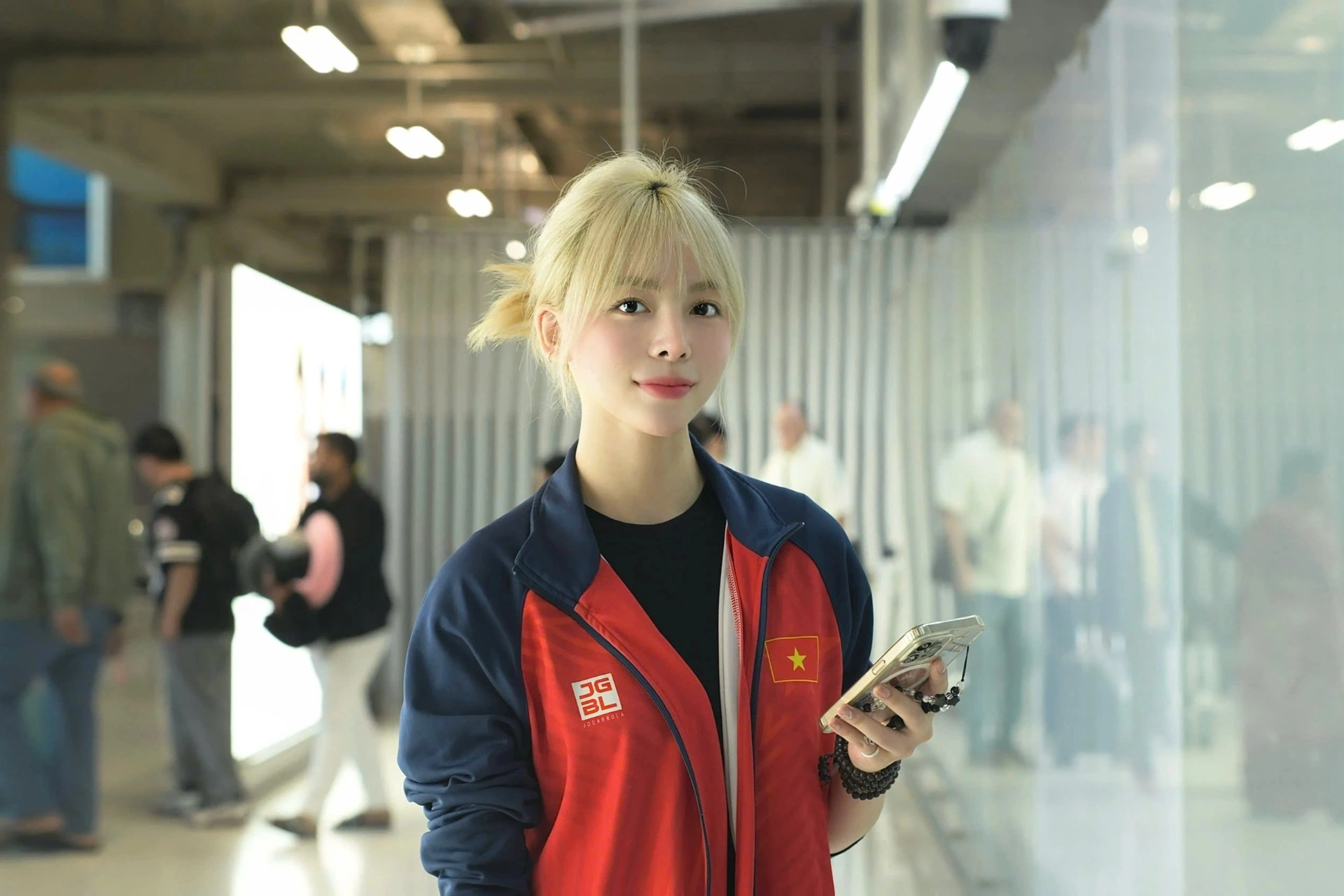

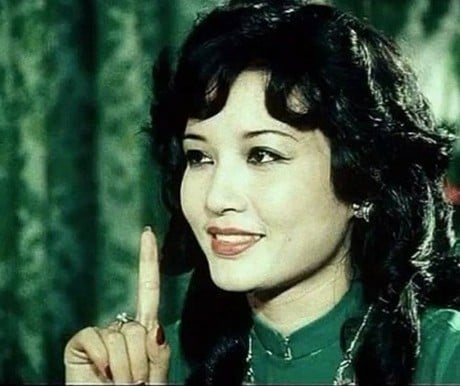
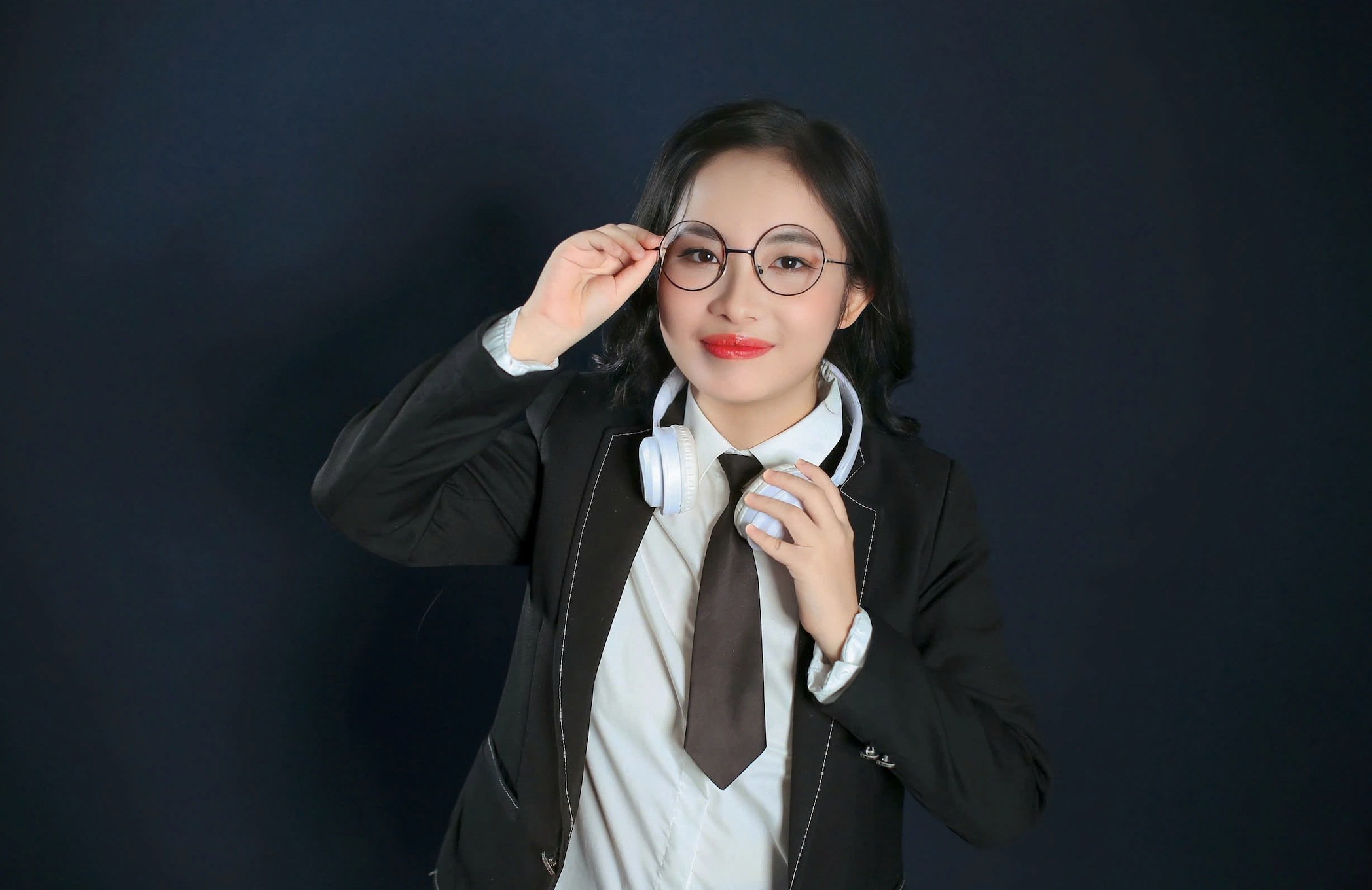

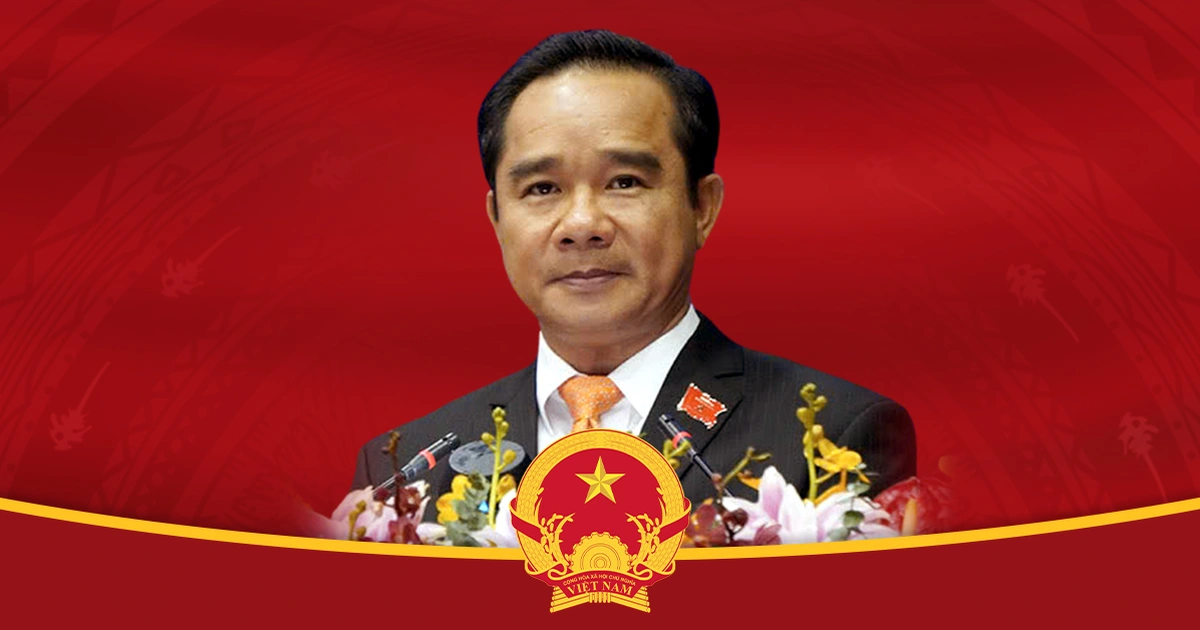

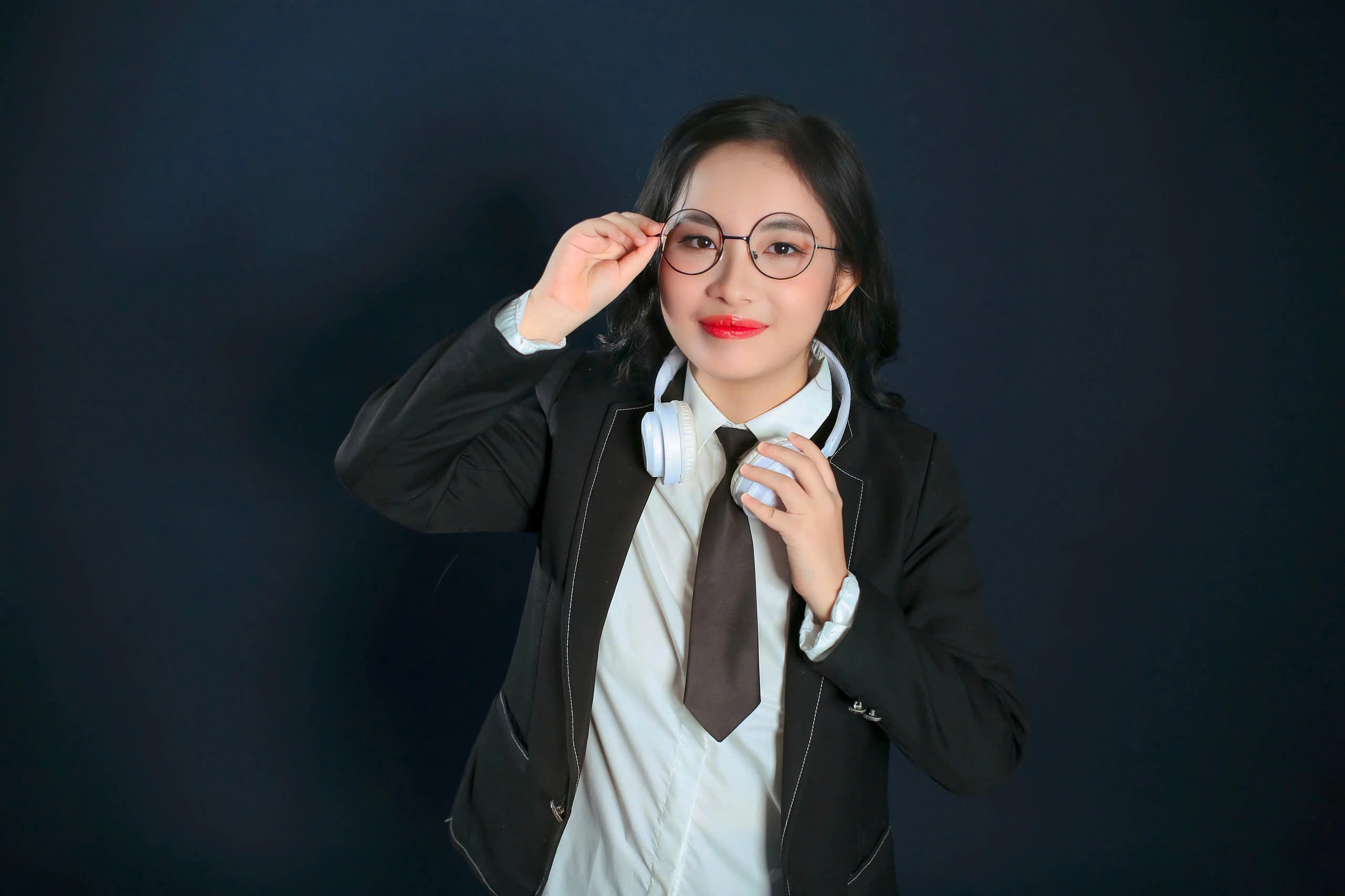
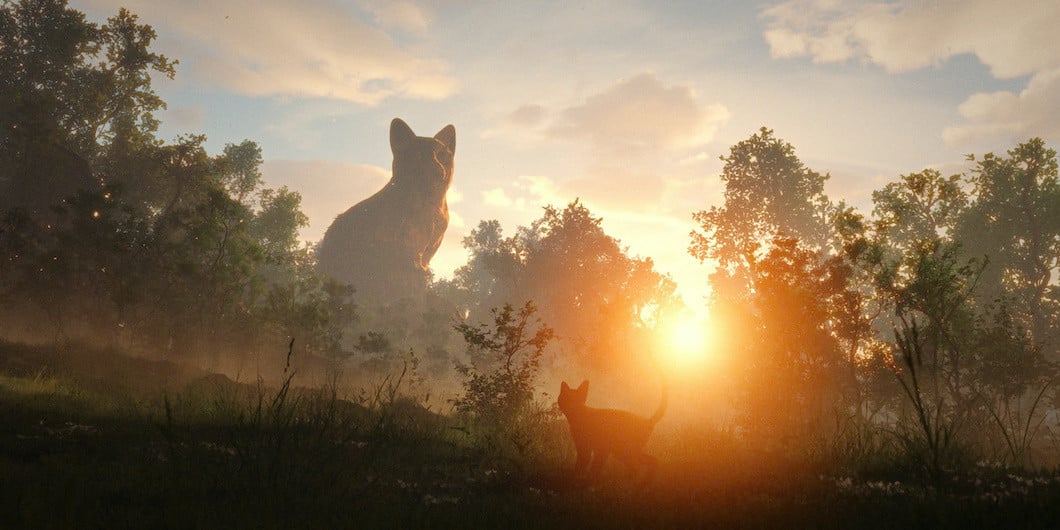
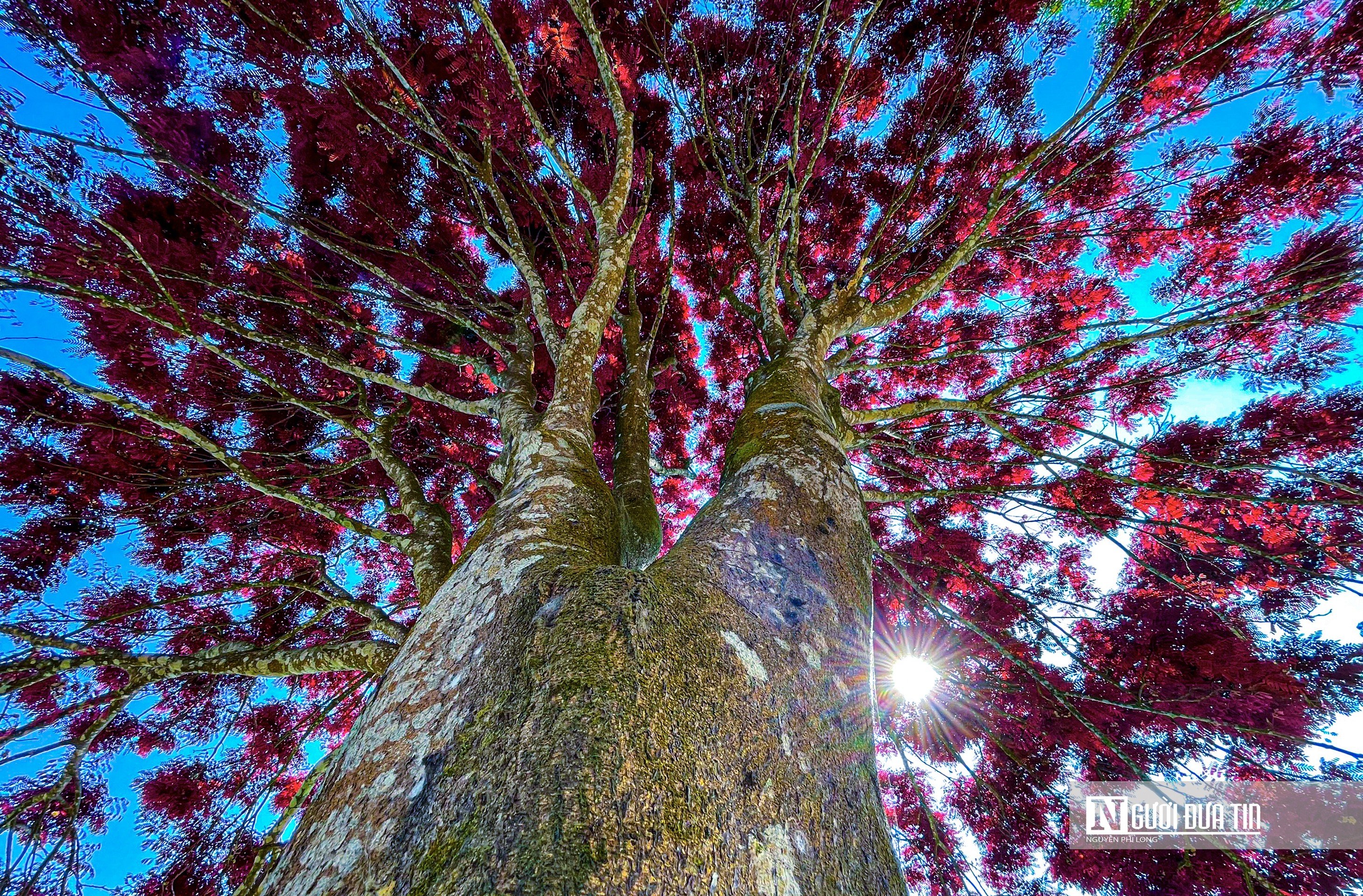
Comment (0)